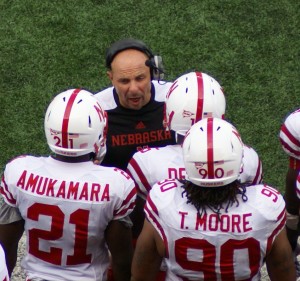 As a coach, I am expected to help others to achieve more. But what about me – the coach – doesn’t it make sense that if I am impressing upon others the value of coaching, that I should have a coach of my own? You bet it does.
As a coach, I am expected to help others to achieve more. But what about me – the coach – doesn’t it make sense that if I am impressing upon others the value of coaching, that I should have a coach of my own? You bet it does.
I have coaches, mentors and accountability partners. I also am involved in multiple mastermind groups, facilitating some and participating in others. I know what you are thinking … what is wrong with this guy, he must really need help.
While not totally disputing that, I am doing it because I want to get better. Not only better as a coach, but better as a person in general. You will always accomplish more when working with another person or in a group. You only have your perspective and trust me, you don’t know half as much as you think you do. I don’t either!
I recently heard a list of coaching principles from one of my mentors and as I reflected on the list, I realized how this list could apply in so many ways in our lives.
1. Self Awareness
For me, self awareness is crucial. This is what helps me stay focused on my “why”. If I don’t take the time to reflect on my purpose and vision and keep aligned with these I start losing focus on why I do what I do.
2. Presence
Have you ever found yourself in a conversation and you are thinking about anything except what the other person is saying? Being present is a way of showing respect and making the other person feel important.
3. Listening
Hearing and listening are two completely different things. When we truly listen, we are able to not only comprehend what is being said, but also hear was is not being said. Sometimes the things that are not said aloud are more important than what is.
4. Curiosity
I love this one. One of the things that John Maxwell does every day is ask questions. Why? Because he wants to know the answers. You don’t know what you don’t know, so you might want to find out what it is that you don’t know.
5. Effective Questioning
As a coach, I am of the belief that we already have the answers within us, we simply are not asking the right questions. Effective questioning is the best way I know of to get effective answers. What kind of questions are you asking?
6. Intuition
Many people think of intuition as a “gut feeling.” I won’t necessarily disagree with that, but I would take it one step further. Intuition is a gut feeling based on previous experience and the resulting outcomes.
So here is a great list for you to think about. So the effective question becomes “What will you do with it?”
How can you apply one or more of these to improve your life or better yet, the life of someone else?
***********************************************************************
Don’t miss a single post from Building What Matters by subscribing at the top left of this page.
Help support us by clicking here and Liking our facebook page
Barry Smith www.buildingwhatmatters.com 10/6/12 photo by author


Great post on skills that make a great leader! We all can benefit from a coach!!
Thanks Michele. I have definitely grown from experiencing both sides of the process.